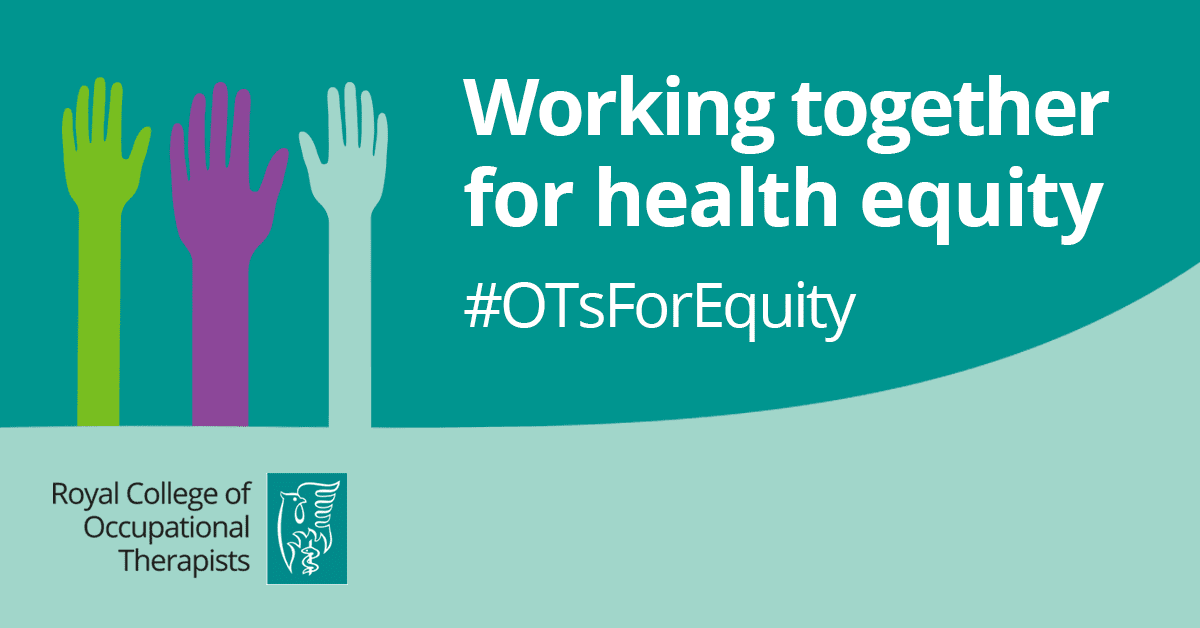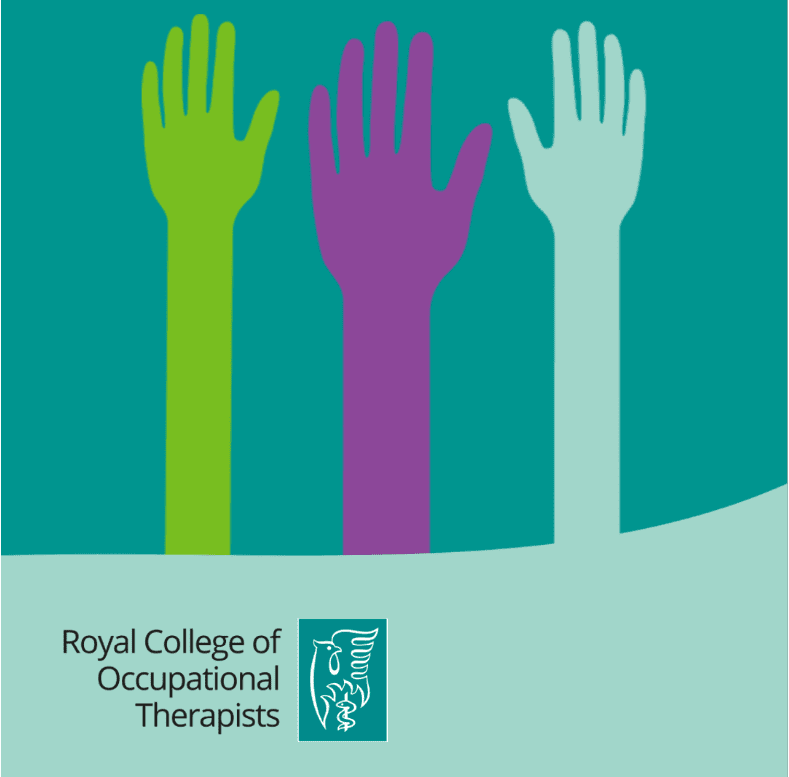Occupational Therapy Week 2021 takes place between 1-7 November, and it aims to shine a light on the important role Occupational Therapists play in addressing health equity.
Our Occupational Therapy Service in Wrexham works with all ages, from children through to adults. The service provides assessments across a range of different areas that citizens may be experiencing difficulties with, which includes:
• Access into and out of your home
• Difficulties getting on and off furniture
• Concerns over falling and not being able to call for help, or those who wander and get confused or have epilepsy and need to get help
• Difficulties managing everyday tasks such as getting dressed or preparing a meal
• Difficulties managing within your home
• Those unable to stand or take weight reliably
• The provision of adaptations for citizens who have behaviours that challenge
#OTsForEquity
The Royal College of Occupational Therapists has launched its new health equity campaign #OTsForEquity, and we’re pleased to be taking part by sharing stories from our OTs in Wrexham.

Here are some of examples of experiences from OTs in Wrexham.
Case scenario 1
What was the challenge?
“I recently worked with a gentleman with dementia related seizures who was using his wife’s stair lift. The citizen’s wife has palliative cancer and while they had a package of care, the couple’s two daughters were supporting most activities of daily living for both parents. The daughters were facing the rapid decline of both parents along with personal health issues in their own families and it felt like a situation on the edge of great sadness.
“I visited the family several times and observed the citizen conducting his daily occupations including using the stair lift and built a good relationship with both the couple and their daughters. The citizen showed competent planning and sequencing skills and I felt confident that he was in good cognitive command of the stair lift, but due to his severe seizures, the stair lift use remained a problem.
“The daughters felt strongly that they continue supporting their father in bathing in the upstairs bathroom, it had meaning for both the daughters and the citizen and they felt that removing this would impact upon their father’s quality of life and their shared experiences with him, already vastly limited as he and his wife are housebound.”
Work in social care and be the lifeline your community needs.
What did you change?
“I worked with the daughters in supporting a move to downstairs living for the couple, referring for adaptations to the downstairs toilet to make it more comfortable, a bath cushion to reduce the risk of injury for the daughters when supporting bathing, and a mattress elevator for the couple to watch TV together in bed.
“For the stair lift, I completed both a standard risk assessment and a balanced risk assessment to explore risks versus benefits. The risk assessment was given to the daughters to ensure they were aware of and accepted the risks, and that they adhered to the conditions of use.
“The conditions were for the stair lift be used once a week, only to support bathing as a downstairs shower wasn’t an option, and a harness was to be fitted. Also, a re-assessment of stair lift use would be completed quarterly by the same OT to detect any further decline in the citizen’s function that could compromise safety and to monitor the frequency of seizures.”
What impact did you make?
“The citizen himself accepted and complied well to the changes in his environment, further cementing clinical reasoning that he has potential to continue in his usual occupational pattern, although somewhat adapted. The whole family felt more supported and that their father was treated as a person with vitality.
“I feel this is a good example of equity as without in-depth analysis it could have appeared more appropriate to remove the stair lift entirely, depriving the citizen and his family of the opportunity to continue with some level of normality. Instead I provided proportional intervention to his needs and ensured he wasn’t written off as someone with limited potential due to his diagnosis.”
Case scenario 2
What was the challenge?
“A husband and wife both with Covid-19 – in different North Wales hospitals, with the next of kin living in South Africa. They had moved into their ‘dream home’ the week they became ill with Covid. Husband had mild dementia, wife also had right arm in plaster after a fall, so struggled immediately with stairs and having no access to toilet downstairs.”
What did you change?
“An environmental visit was carried out. The ICF Occupational Therapist liaised with OTs at both hospitals regarding the environment and son in South Africa. The son arranged a stair-lift and wet room privately and the OT advised him what would be required in the adaptation for both parents to manage in the property long-term.”
What impact did you make?
“A follow up visit was completed by the ICF OT the week they were both discharged from hospital, with advice and information provided, plus further equipment and rails. The wet room is now completed and the stair lift will be installed soon. Both are managing well in their ‘dream home’ with no formal cares required.”
Wow! A couple of great examples of how positive outcomes were achieved! We’ll be sharing some more stories from OTs in Wrexham later in the week, so stay tuned for those.
How to access the OT service
The OT service can be accessed via the adult’s single point of contact for adults, or via the Multi Agency Panel for children with disabilities.
[button color=”” size=”large” type=”square_outlined” target=”new” link=” https://myaccount.wrexham.gov.uk/en/service/Care_Jobs_in_Wrexham”]FIND LOCAL CARE JOBS[/button]









